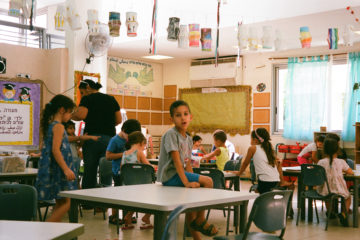Young Pakistani girl Malala Yousafzai, now just 17, stole the hearts and attention of a global audience when she was shot in the head by a Taliban gunman on a school bus in Pakistan’s Swat Valley simply for advocating the right to go to school. After her recovery, Malala bravely turned her suffering into activism, pushing even further to promote youth education — particularly for girls — in Pakistan and across the globe. And, By 10 October 2014, she became the youngest recipient of Nobel Peace Prize for her work.
“Pakistan has a new heroine and a new cause — a girl’s right to education” reported CNN*, and the Nobel Committee praised Malala and her co-recipient, Kailash Satyarthi, “for their struggle against the suppression of children and young people and for the right of all children to education.”
These calls for the “right to education” in the context of Malala’s activism were firmly rooted in Malala’s own framing of her work. In her memoir, I Am Malala: The Story of the Girl Who Stood Up for Education and was Shot by the Taliban (co-written with British journalist Christina Lamb)** Malala writes, ” How dare the Taliban take away my basic right to education…”
Whether or not it has been intentional, Malala’s work and the media frenzy that followed have done a wonderful job of not only advocating for education for children, but also in framing the issue as a human right.
Using the language of human rights to advocate for universal access to education for young people is of course nothing new. The idea of a universal “right to education” in international law dates, at the very least, to the Universal Declaration of Human Rights of 1948. And yet, despite over 50 years since the right was enshrined in this seminal human rights document, the need to frame access to education as a ‘human right’ remains an important, and still embattled task.
Article 26 of the Universal Declaration of Human Rights, the first international effort to define and protect human rights globally, lists education as one of almost 30 ‘areas’ of human rights states have a duty to protect, and states simply, “everyone has the right to education.” Further efforts to codify the ‘right to education’ in binding pieces of international law requiring formal opt-in ‘ratification processes’, additionally invoke the right to education. For example, in the 1976 International Covenant on Social and Cultural Rights, which says “State Parties to the Covenant recognize the right of everyone to education.” The near universally ratified 1990 Convention on Rights of the Child also references the “right of the child to education” as a primary right, and requires its State Parties to “Make primary education compulsory and available free to all.”
While a ‘right to education’ remains firmly rooted in developing international human rights law, Malala’s struggles indicate the very real challenges to realizing this right universally in practice. The issue can raise a host of related questions, for example, linked to gender rights and economic policies. But because the right often faces challenges in being realized in practice, continuing to frame the issue in the language of ‘rights” and as a ‘human right’ remains important.
Indeed, the issue deserves a central place in international human rights law, which often tends to lump education under other broad issue-based or group-based conceptions of human rights. Access to education is, for example, a corollary to children’s rights, women’s rights, and “social” rights, but –crucially—it is a human right, and Malala’s activisim is a powerful reminder that framing the issue firmly in the broadest language of human rights remains an important task.
Of course words are just words— mere paper promises in human rights rarely result in guaranteed protections for those suffering in practice. But the research from scholars such as Beth Simmons *** (in her 2009 book Mobilizing for Human Rights) helps indicate that framing issues as rights can be an important first step in helping set agendas, and helping proponents mobilize and leverage activism firmly grounded in internationally sanctioned language of human rights. The more that international law and discourse frame and reinforce the issue of education as a ‘human right’, the more uncomfortable it can be for international actors to have to defend and maintain abusive policies, and the more local activists can use international commitments to hold regimes accountable. Of course this is no guarantee that so-called bad actors won’t continue abusive practices, but the more uncomfortable it is for them to justify them, the better, and Malala and the media’s reinvigoration of the language of human rights to advocate for universal education is a great start.
*http://edition.cnn.com/2014/10/10/world/malala-yousufzai/
**http://en.wikipedia.org/wiki/Christina_Lamb
***http://scholar.harvard.edu/bsimmons/mobilizing-for-human-rights



